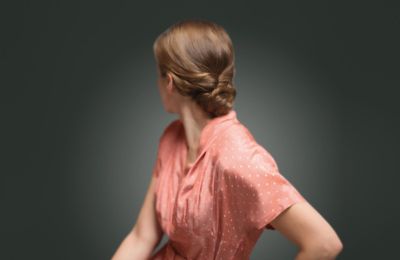Posmysz, Zofia

Zofia Posmysz’s works dealing with the camps
Pasażerka [The Passenger]
In 1959 Zofia Posmysz wrote a radio play with the title Pasażerka z kabiny 45 [The Passenger in Cabin 45]. A year later she wrote a television play based on the original. In addition, Zofia Posmysz co-authored the scenario for the film “The Passenger” with the director, Andrzej Munk. Work on the film was then interrupted by the death of the director in 1961. The discussion on the future of the incomplete film inspired Zofia Posmysz to write the “Passenger” in the form of a novel. The book appeared in 1962. It was translated into several languages.
The events of the novel “The Passenger” are told from the perspective of the former German concentration camp guard. The action takes place aboard a liner taking a married couple, Lisa and Walter, from Europe to America. Lisa believes that she has spotted amongst the passengers the former prisoner Marta who worked in the group for which she was responsible. She is so shocked that she reveals her past to her husband, whilst attempting to deny any responsibility for her deeds.
In the part of the film of “The Passenger”, shot by Andrzej Munk, the words take second place to the images. When the director died, he had only shot the sequences in the camp. When work on the film resumed under the leadership of Witold Lesiewicz, photographs and commentaries were used to replace the missing scenes. When the film was awarded the critics’ prize, FIPRESCI, at the Cannes film Festival in 1963, Jean-Luc Godard remarked that it was “the best war film ever, because it is incomplete and remains uncompleted”.
“The Passenger” has also got a musical history. In 1968 Mieczysław Weinberg (1919–1996), whose close relations died in the camps, composed an opera based on the book with a libretto by Alexander Medwedew. The USSR Ministry of Culture regarded their work as an example of “abstract Humanism” and banned any performance of the opera on ideological grounds. The first concert performance of the opera in Moscow only took place in 2006, after the death of the composer. Weinberg’s music was celebrated as a masterpiece. The first full production of the work, directed by David Pountney, took place as part of the Bregenz Festival in 2010. In the production of “The Passenger” the authenticity of the events was not overshadowed by the music and the performances. The opera was subsequently produced in Warsaw, London, Karlsruhe, New York and Tianjin. The critic of the “New York Times” described it as a “story with a moral, which avoids any didactic”.
Wakacje nad Adriatykiem [Holidays on the Adriatic Coast] (1970)
The story [Holidays on the Adriatic Coast] is based on the memories of my friend Zosia in Kraków, a violinist and the protagonist of my novel. She came from a very cultivated house, her father was a student of German literature […] She regarded the camps as if they were phenomena from the Nibelungen saga, from Wagner’s operas, with mythical knights and maidens. When she glimpsed a guard on horseback she said: “Look, the woman on horseback is Brunhilde”. When describing the camp as a colony of deaths head knights, I was somehow making use of her fantasy.[2]
The novel “Holidays on the Adriatic Coast” is an attempt to find a literary language for the theme of the camps. The novel is written in the form of an internal monologue where the narrator remembers her time in the camps. It is an apologia for friendship which was even possible in Auschwitz. In the novel Zofia Posmysz recalls a person named Zofia Jachimczuk who worked with her at the start of her time in the camp. Zofia Jachimczuk was a graduate from the Music Conservatory in Kraków. She refused to play in the camp orchestra, something which did not improve her chances of survival. She died in 1943. The new edition of the novel was published by the Kraków publishing house Znak in 2017. It also published a lengthy interview with Zofia Posmysz in a book entitled Królestwo za mgłą [The Kingdom in the Fog].
[2] Zofia Posmysz in an interview for “Tygodnik Powszechny” (No. 5/2015).


